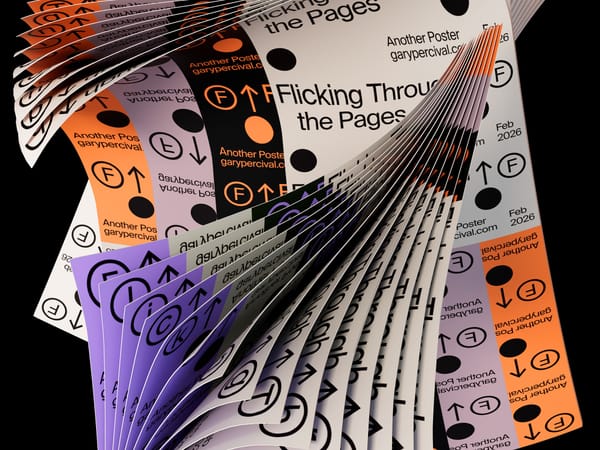Why We Trust Excuses: How Nice People Keep Us Stuck, and Kind People Set Us Free
“While excuses might provide temporary comfort, they’re often the very things keeping us from reaching our full potential as creative professionals.”

As freelancers, graphic designers, and creative professionals, we often find ourselves in a world where feedback, collaboration, and client relationships are integral to our success. In this environment, it's easy to fall into the trap of trusting excuses—both our own and those of others.
But what if the very people we perceive as "nice" are actually holding us back, while those we might initially see as "harsh" are the ones pushing us toward growth and success?
"While excuses might provide temporary comfort, they're often the very things keeping us from reaching our full potential as creative professionals."
Let's dive into:
- Why we trust excuses
- How "nice" actions can be a detriment to our creative growth
- Why truly kind people—those who challenge us—are the ones who ultimately set us free
The Comfort of Excuses
We've all been there. A project is running late, a design isn't quite right, or we're struggling to meet a deadline. In these moments, excuses can feel like a warm blanket, shielding us from the harsh reality of our shortcomings or the challenges we face.
Excuses provide:
- Immediate relief: They alleviate the discomfort of confronting our limitations or mistakes.
- Self-preservation: Excuses protect our self-image and professional reputation (or so we think).
- Avoidance: They allow us to sidestep difficult conversations or tasks.
- Familiarity: In a world of uncertainties, excuses offer a known narrative.
But here's the hard truth: while excuses might provide temporary comfort, they’re often the very things keeping us from reaching our full potential as creative professionals.
The "Nice" Trap
In our industry, we often encounter people who seem incredibly nice. They're the clients who never complain, the colleagues who always agree, and the mentors who only offer praise. While these interactions can feel good in the moment, they might be doing more harm than good.
"Kind people inspire us to reach beyond our current capabilities, while 'nice' people may inadvertently enable mediocrity."
How "Nice" Actions Hold Us Back
- Lack of Constructive Feedback: When people are too "nice" to offer honest critiques, our work doesn't improve. We miss out on valuable insights that could elevate our designs or streamline our processes.
- Enablement of Mediocrity: By accepting excuses and subpar work, nice people inadvertently set low standards. This can lead to a plateau in our skills and comfort with mediocrity.
- False Sense of Security: Constant praise without constructive criticism can create an inflated sense of our abilities, leaving us unprepared for real-world challenges.
- Delayed Growth: Without being pushed out of our comfort zones, we may not seek out new skills or tackle more challenging projects.
- Misaligned Expectations: When clients or collaborators are too "nice" to express their true needs or concerns, projects can go off track, leading to frustration and wasted time.
The "Nice" Client Scenario
Imagine you're a freelance web designer. You've just delivered a website design to a client who responds with, "Oh, it's nice! Thank you!" But a week later, they come back with a list of major changes, saying they didn’t want to hurt your feelings initially.
This "nice" approach has now led to:
- Extra work and revisions
- Misaligned expectations
- A potentially frustrated client
- Doubts about your ability to interpret briefs
Had the client been kindly honest from the start, you could have addressed their concerns immediately, saving time, maintaining confidence in your skills, and ultimately delivering a better product.
The Freedom of Kindness
Now, let’s contrast this with truly kind conduct. Kind people, unlike those who are simply "nice," are willing to:
- Offer Honest Feedback: They provide constructive criticism, even when it's uncomfortable.
- Challenge Our Assumptions: Kind people push us to question our processes and ideas.
- Hold Us Accountable: They don't accept excuses at face value but encourage us to find solutions.
- Celebrate Real Achievements: Their praise is meaningful because it's earned and specific.
- Encourage Growth: Kind people inspire us to reach beyond our current capabilities.
How Kindness Sets Us Free
- Fosters True Improvement: Honest feedback allows us to identify areas for growth and actually improve our skills.
- Builds Resilience: By challenging us, kind people help us develop the ability to handle criticism and setbacks.
- Encourages Innovation: When we’re pushed beyond our comfort zones, we’re more likely to come up with innovative solutions and designs.
- Aligns Expectations: Clear, kind communication helps ensure everyone is on the same page, leading to smoother projects and satisfied clients.
- Boosts Confidence: Overcoming challenges and earning genuine praise builds real confidence in our abilities.
The Kind Mentor Scenario
Consider a mentor who reviews your portfolio and says, "Your technical skills are strong, but your designs lack a cohesive brand voice. Have you considered taking a branding workshop?" This feedback might sting initially, but it:
- Provides a clear area for improvement
- Offers a specific action step
- Acknowledges your existing strengths
- Opens up new opportunities for growth
This kind of honest, constructive feedback is far more valuable than a simple "Your work looks great!"
Breaking Free from the Excuse Cycle
So, how do we move away from trusting excuses and embrace the freedom that comes with kindness? Here are some strategies:
- Seek Out Honest Feedback: Actively ask for constructive criticism from clients, colleagues, and mentors. Make it clear that you value honesty over niceness.
- Practice Self-Honesty: Be your own kind critic. Regularly assess your work and habits without making excuses.
- Embrace Discomfort: Recognise that growth often feels uncomfortable. Lean into that feeling rather than avoid it.
- Reframe Criticism: Instead of seeing feedback as an attack, view it as a valuable tool for improvement.
- Offer Kind Honesty to Others: Practice giving thoughtful, constructive feedback. You’ll likely find that others appreciate your honesty and reciprocate.
- Set Clear Expectations: With clients and collaborators, establish open lines of communication from the start. Encourage them to be honest with you throughout the process.
- Celebrate Growth, Not Just Success: Acknowledge the progress you make, even if the end result isn't perfect. This encourages a growth mindset.
The Path Forward
As creative professionals, our growth is intrinsically tied to our ability to receive and act on feedback. By recognising the difference between "nice" actions that keep us comfortable and truly kind conduct that challenges us, we can break free from the cycle of excuses and mediocrity.
Remember, the next time someone offers you honest, constructive feedback, they’re not being mean—they’re being kind. They’re investing in your growth and success.
Embrace these opportunities, seek them out, and watch as your work and professional relationships flourish.
In a world that often prioritises comfort over growth:
- Choose kindness over niceness
- Choose honesty over placation
- Choose growth over stagnation
By doing so, you’ll not only elevate your own work but also contribute to a culture of continuous improvement and innovation in the creative industry.
Let’s break free from the chains of excuses and embrace the liberating power of kindness. Your future self—and your clients—will thank you.



